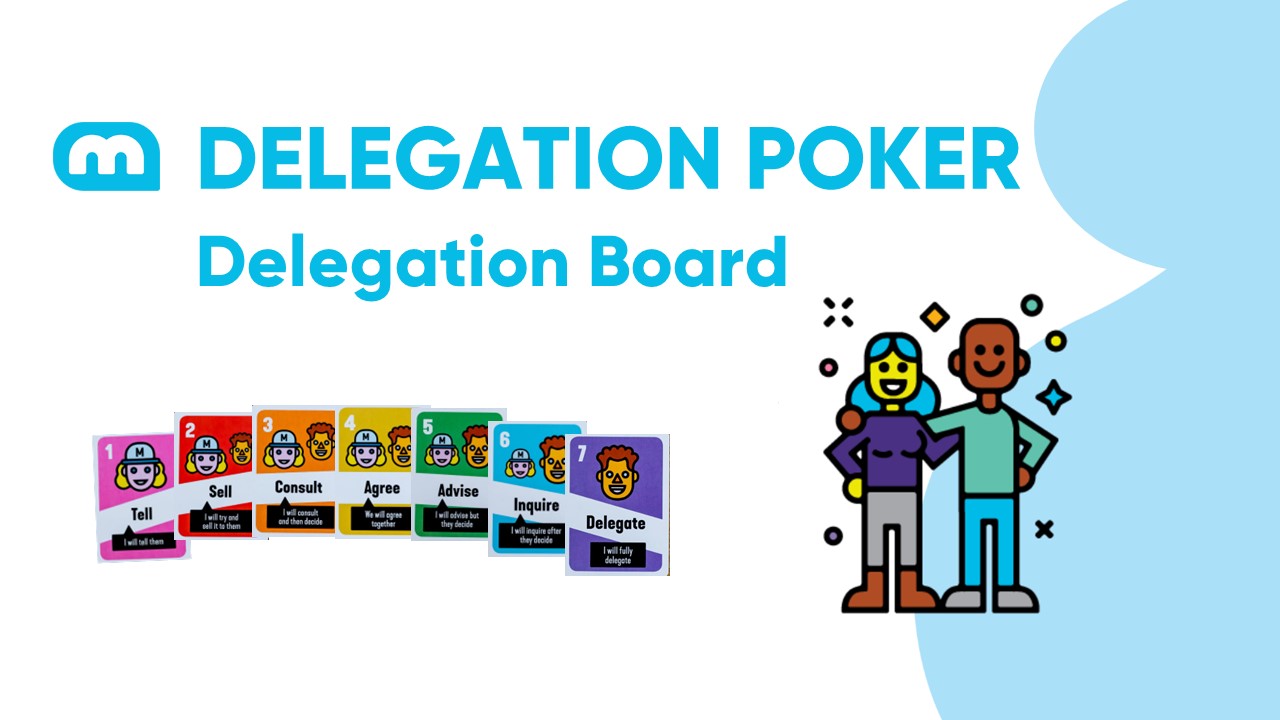In my posts How Kudo Cards Helped My Team and ENERGIZER: Moving Motivators I told you the stories about my experience of usage these two tools by Management 3.0 in my teams.
This time I would like to tell you a few words about the third tool – Delegation Poker. Delegation Poker is a tool used in the Management 3.0 methodology to help teams make decisions about how to delegate tasks and responsibilities. It involves a group of people discussing and ranking different levels of delegation, from micromanagement to full autonomy. Each level of delegation is represented by a card and participants discuss and debate which card to assign to each task or responsibility.
Three or four months ago, I received a request from one of the Team Scrum Masters whom I mentor. I was asked to help prepare and conduct a meeting for the team using Delegation Poker and Delegation Board. The goal of the meeting was to assess the team’s level of self-organization and improve it. In addition, the team wanted to clarify who is responsible for what and at what level. I thought it’s a good idea.
I accepted this challenge because the Delegation Poker tool helps increase the level of involvement of team members through controlled self-organization and discussion of values and decision-making. Besides I was happy that the team itself asked it.
We prepared a board on which we pre-placed the stickers with situations that occur in the team and Delegation Poker cards. Then we discussed the scenario and scheduled a meeting with the team.
The meeting was successful. First, the team assessed the current situation and then moved on to agreements on how they can expand the powers/responsibilities of the team as a whole and each team member individually.
As a result, the team obtained a delegation matrix, which made it clear who makes decisions and when. The team left the meeting inspired and with a sense that they can influence what they do. This is a very important moment that motivates people and helps them realize the value they bring.

There are advantages and disadvantages of this tool. I would like to highlight these points.
Advantages
Delegation Poker can help the team:
- have more productive discussions about delegation
- increase clarity around who is responsible for what
- improve trust between team members
- encourage greater ownership and accountability
Disadvantages
However, there are also some potential disadvantages to using Delegation Poker, such as:
- it may take longer to make decisions as a group
- there may be disagreement or confusion about the appropriate level of delegation for a particular task
- it may not be suitable for all teams or situations
Overall, Delegation Poker can be a useful tool for teams looking to improve their delegation practices, but it’s important to consider its potential downsides and whether it’s the right approach for your team. I would highly recommend it.
Do you have experience of this tool? Please share it!
Do not hesitate to contact me on Telegram or at LinkedIn – just click one of these words.




